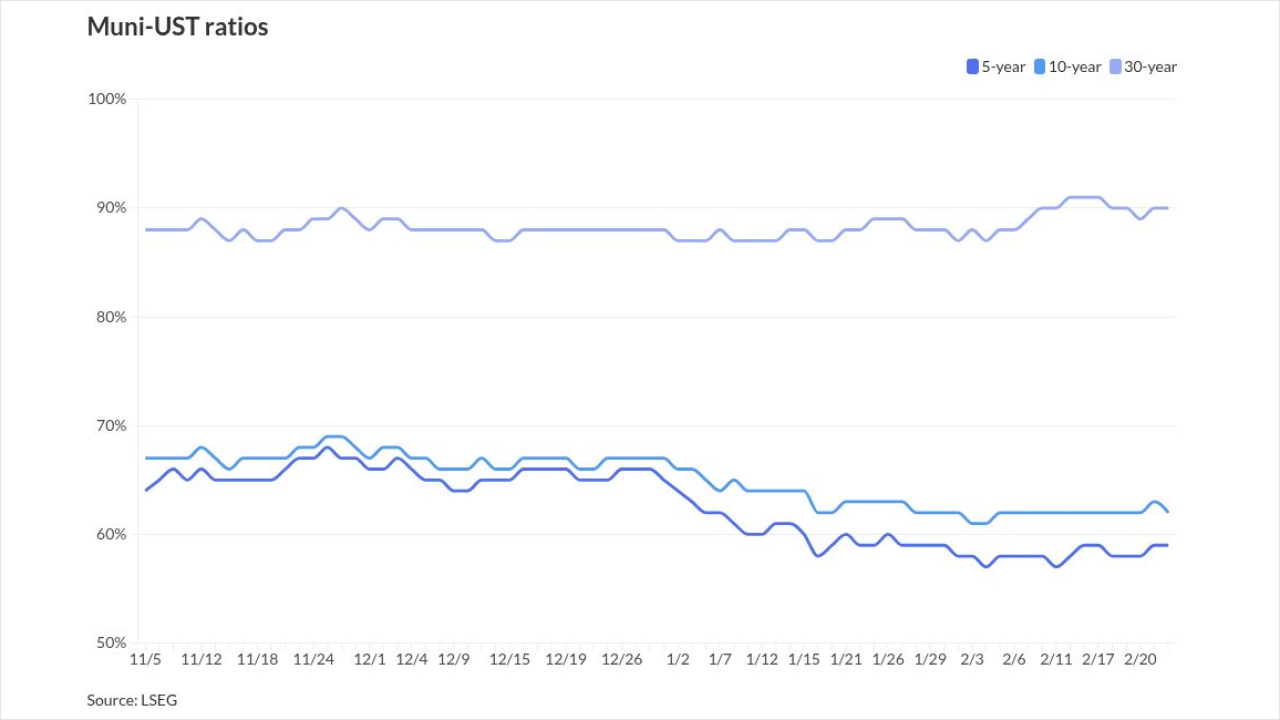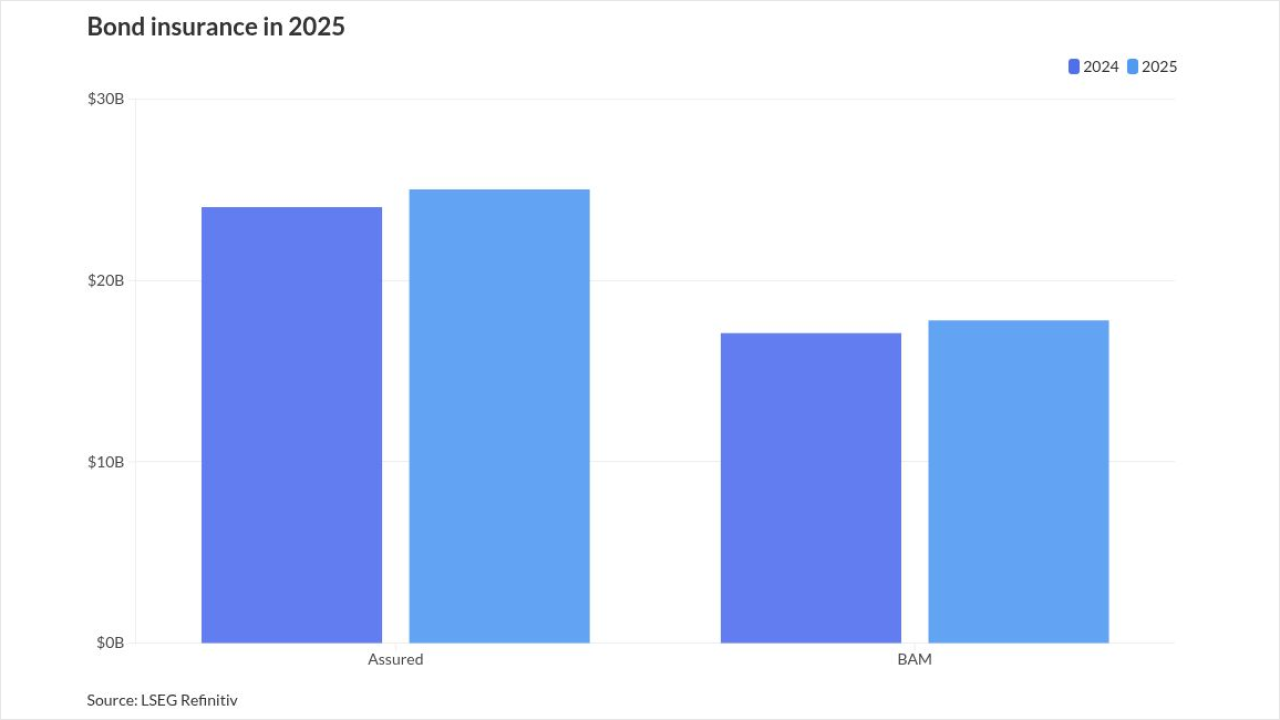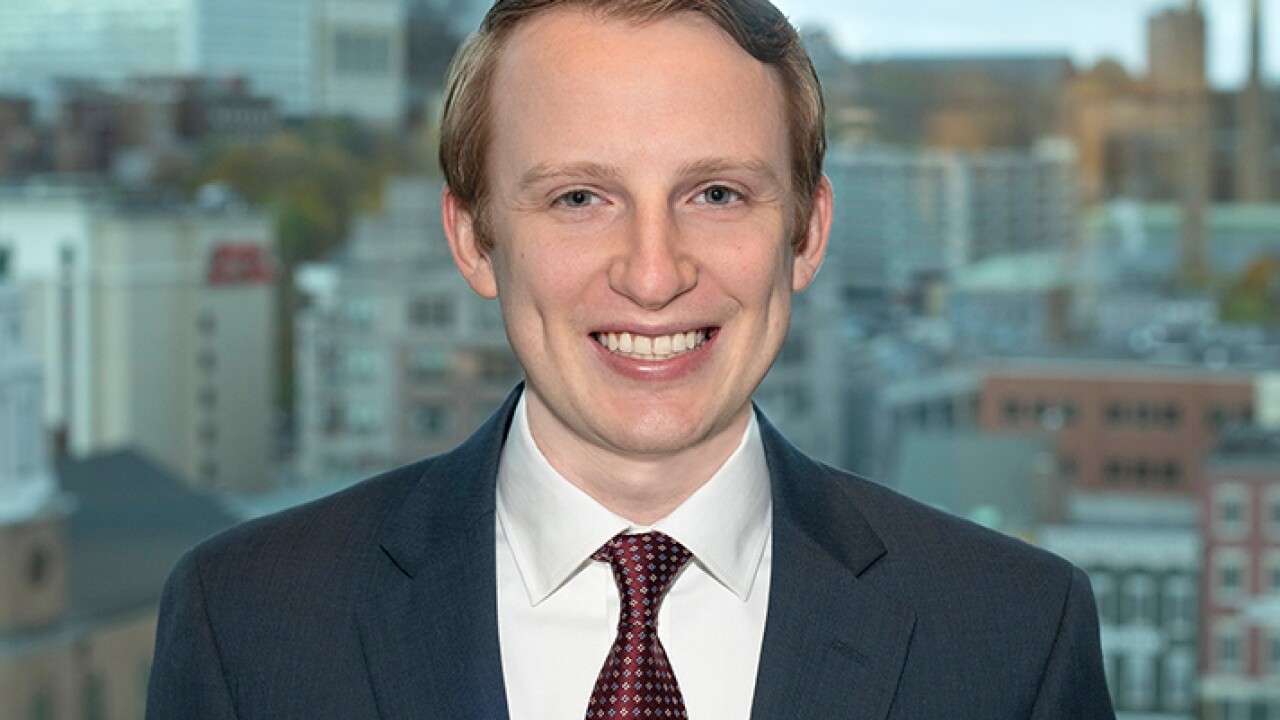Nearly $6 billion of bond requests will be decided by Midwest voters on Nov. 6.
In addition to the local bond referendums in seven states, voters will decide seven governorships, tax measures that include a state gas tax hike in Missouri, and recreational marijuana questions in two states.
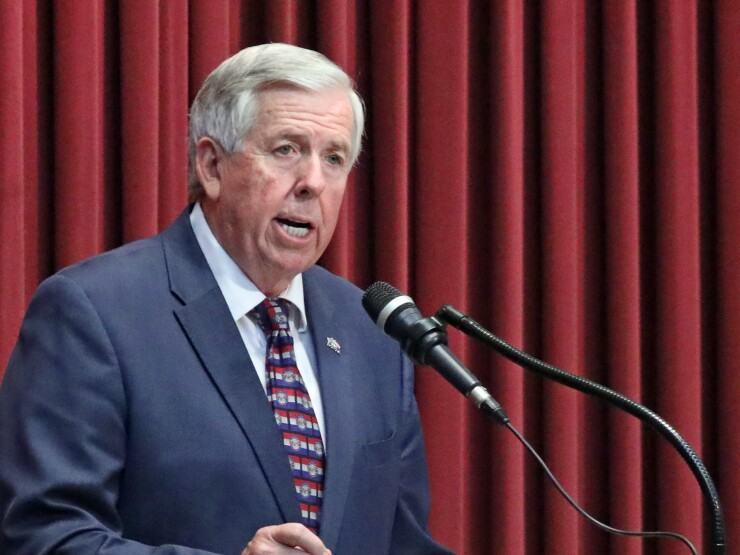
In Wisconsin, voters will decide 82 referendums sought by 61 school districts. They include 44 bond requests for $1.25 billion of debt. Also, 24 districts seek non-recurring revenue limit exemptions for $157 million, and 14 ask for a recurring revenue limit exemption for $26.1 million a year, according to a report from the Wisconsin Policy Forum.
The biggest bond referendums on the Wisconsin ballot are from Middleton-Cross Plains Area School District, seeking $138.9 million and Wauwatosa seeking $124.9 million.
In Illinois, voters face about 15 bond requests totaling about $1 billion. Most are for schools but several are for fire districts and local governments. Four are seeking more than $100 million. Cook County Community College District 12/Harper College is seeking $180 million and Elmhurst Community School District #205 wants $168.5 million in borrowing authority to fund new schools, school additions, and technology upgrades. Hinsdale Township High School District #86 is seeking $166.5 million for district-wide projects, and Maine Township High School District #207 wants $195 million for district-wide infrastructure work including security upgrades.
Missouri has four bond measures from local governments and school districts totaling about $400 million with Parkway School District C-2 being the largest at $110 million.
About 20 school districts in Minnesota are seeking bond approvals, some in multiple referendums, totaling about $300 million.
Michigan voters will see $1.8 billion of bond requests in 21 proposals from school districts and four from local governments.
Lake Orion Community schools is the largest with its $160 million bond request. Wayne-Westland Community Schools is asking voters to approve $158 million in borrowing. Proceeds would finalize capital improvements throughout the district, which includes replacing 80% of the district’s bus fleet.
Utica Community Schools is asking voter to approve $155 million of bonds for safety and security, technology and infrastructure improvements.
In Ohio, voters are being asked to authorize $1.2 billion on a total of 34 bonding proposals. Six are for local governments and the rest are for local school districts.
The largest is from Dublin City Schools for $195 million.
Lucas County is asking voters to approve $185 million of bonds for a new jail and behavioral treatment center. The county is seeking a 1.37 mill levy over 37 years.
County officials plan to move ahead with building the new jail at the new location if the bond proposal is passed despite opposition from a grassroots group petitioning to keep the jail downtown.
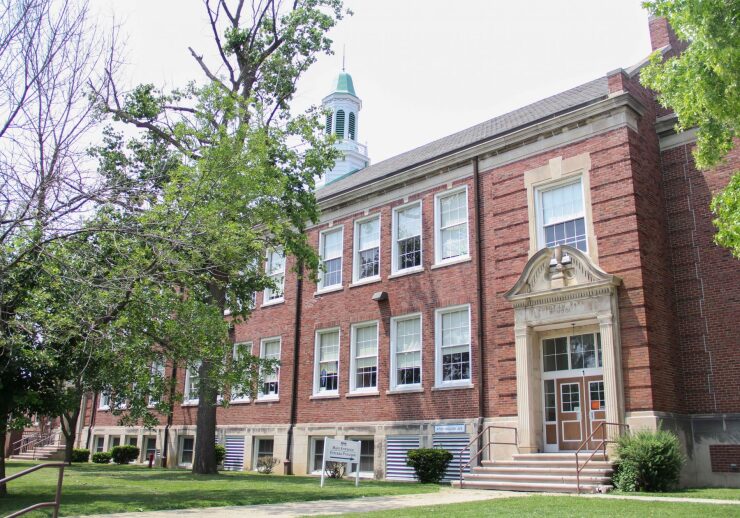
In Indiana, Marion County voters will vote on Indianapolis Public Schools' $52 million capital bond referendum and a $220 million operating referendum that would boost the district’s general fund over the next eight years.
GOVERNORS
Illinois is among the most high-profile governor races given the record level of spending by the candidates and the state’s deep fiscal woes.
Republican Gov. Bruce Rauner is seeking a second term. He is running against venture capitalist and philanthropist J.B. Pritzker. Both are wealthy and have spent a combined $207 million in the race, including $136 billion by Pritzker and $71 million by Rauner. It’s a state record that exceeds the $112 million spent four years ago when Rauner unseated incumbent Pat Quinn.
Both candidates have only provided sketchy details about how they would deal with the state’s most pressing strains: its $129.5 billion unfunded pension tab and its $7 billion bill unpaid backlog.
If Rauner is re-elected, some municipal market participants are concerned about a return to the budget gridlock of his first two years in office, or that that little headway may be made on fiscal woes. Pritzker has pitched billions in new spending on education, infrastructure, and other areas and that too has some market participants concerned.
About one-third of the Senate is up for re-election as are all House members. Democrats currently hold a three-fifths supermajority in the Senate and a simple majority in the House.
In Minnesota, U.S. Rep. Tim Walz, is the Democrat-Farmer-Labor Party candidate for governor and Hennepin County Commissioner Jeff Johnson is the Republican candidate to replace Mark Dayton of the DFL, who did not seek re-election. All 134 seats in the GOP-controlled House are up for re-election. It's not a state Senate election year.
Walz says the state is fiscally strong and wants discussions on spending priority on education, health care and infrastructure. Johnson says the state is overspending and wants tax cuts.
Wisconsin Gov. Scott Walker, a Republican, faces state Superintendent of Public Education Tony Evers, a Democrat. Both have pledged to raise education spending but Evers proposal is more expensive than Walker. The governor also has pledged to raise transportation funding at the county level by 30% while Evers says he will announce a plan after the election.
Republicans currently hold a majority in the Senate and Assembly. All 99 Assembly seats are up as are 17 of 33 Senate seats.
Michigan’s infrastructure challenges emerged as a central issue in the gubernatorial race between Attorney General Bill Schuette, a Republican, and former state Sen. Gretchen Whitmer, a Democrat.
Whitmer wants $2 billion a year in new spending for infrastructure and another $1 billion in annual federal funding. The plan relies on raising revenue through increased fees or taxes. If that fails, Whitmer has proposed raising the funds through bonding.
Schuette’s plan on infrastructure spending is less clear. He has said that he plans to add to the current $1.2 billion planned investment into roads without implementing a gas tax hike.
The two are running to replace two-term Republican Rick Snyder, who faced term limits. Republicans control both houses of the legislature, where every seat in both houses is on the ballot.
Ohio’s race also features infrastructure as a key topic for Democratic gubernatorial candidate Richard Cordray and Republican candidate Mike DeWine. The two are running to replace term-limited Republican John Kasich.
DeWine is the state’s attorney general, in office since 2011. Cordray served as the first director of the federal Consumer Financial Protection Bureau from 2012 to 2017. He also served as Ohio’s attorney general, from 2009 to 2011
Cordray is proposing a $2 billion bond issue that would be paid off from existing taxes to help improve the state’s roads, bridges, mass transit offerings and broadband internet service. He would send the request to voters after negotiating a size.
DeWine wants to appoint a blue ribbon task force to come up with an infrastructure plan and ways to pay for it. He didn’t rule out tax increases if recommended.
Both have also said that they plan to offer more financial support for local governments.
Republicans control the legislature. All 99 House seats are up for election as are 17 of the Senate’s 33 seats.
In South Dakota, Republican nominee Kristi Noem is running against Democrat Billie Sutton. Noem is a member of the South Dakota House of Representatives. Sutton is the Senate minority leader. The two are running to replace Republican Dennis Daugaard who is term-limited. Republicans control both the Senate and House, where all seats are up for election.
In Nebraska, incumbent Pete Ricketts, a Republican, is seeking re-election to a second term against Democrat Bob Krist, a state senator representing Omaha. Krist was appointed by former Gov. Dave Heineman as a Republican and switched political parties earlier this year.
BALLOT MEASURES
Legalization of marijuana is on the ballot in North Dakota and Michigan. The Michigan initiative would ask consumers to pay a 10% excise tax that supporters of the proposal say could potentially generate $129 million in tax revenue once the market matures.
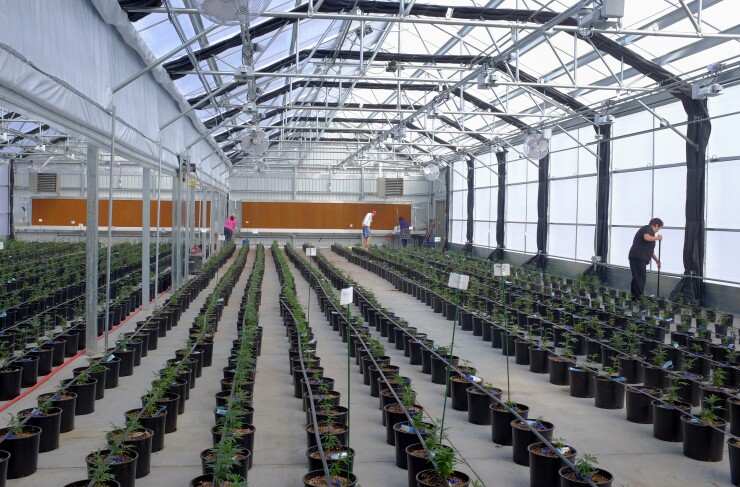
A report from national marijuana consulting firm VS Strategies of Colorado anticipates Michigan retail sales would begin in 2020 and projects recreational pot will become an $800 million industry by 2024 if voters approve the Nov. 6 ballot measure.
The North Dakota proposal would not create a cannabis specific tax. Sales would be subject only the 5% state sales tax.
In Missouri, voters decide on Proposition D, asking if the state should raise the gas tax to fund long-stalled road and bridge projects. An $825 million annual shortfall in funds exists and officials warn it’s now a safety issue.
State officials say a 10-cent-per-gallon hike phased in over four years would generate $123 million annually for cities and counties and $288 million for the state. The gas tax has stood at 17 cents per gallon for more than two decades.
The hike has the support of Gov. Mike Parsons, a Republican.
“If we don't fix our roads, if we don't fix our bridges, and our airports and our ports and our rail, we will not be able to grow and meet the other demands. That is crucial for the state of Missouri,” he said in announcing his support.
In Indiana, voters will have the opportunity to amend the state constitution by requiring legislators to pass balanced budgets. If the ballot proposal passes, lawmakers won’t be allowed to approve more in spending than what the state expects to collect in revenues.

